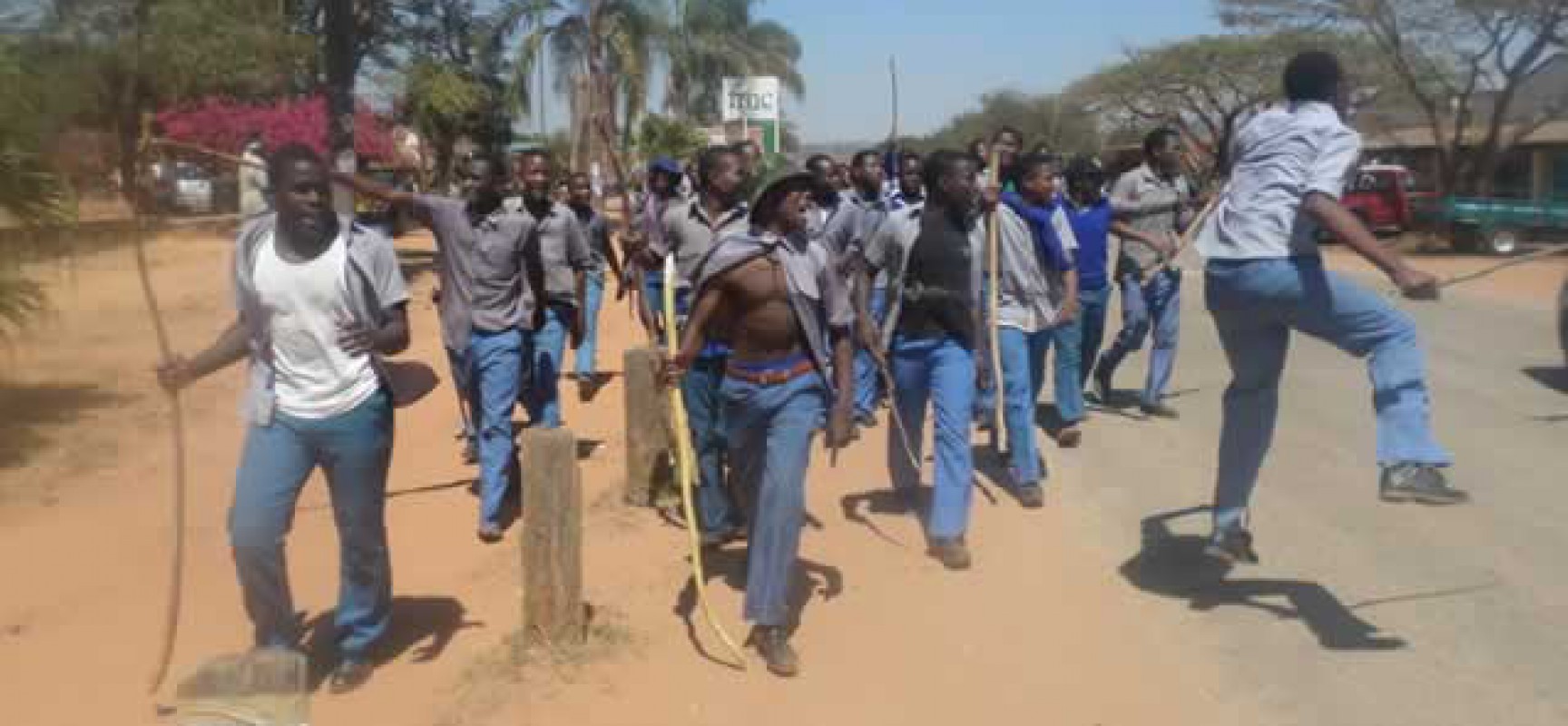by Claver Nyuki
The Zimbabwe Congress of Trade Unions (ZCTU) organised National Shutdown from 14 January to 17 January 2019, disguised as demonstration against the rise in fuel and growing hardships, only managed to expose the various players on the political scene who are advancing their own selfish agendas of regime change in Zimbabwe.
The demonstration, which evidence has shown, was just a front to engage in looting and criminal activities have the hallmarks of MDC’s modus operandi which is usually characterised by rowdy MDC youth attacking Police Stations and vandalising State property.
The Police station in Makoni, Chitungwiza was attacked, destroying property worth thousands of dollars and another station in Entumbani, Bulawayo was attacked leading to the death of one Constable Maune from Bulawayo, their motive, to capture and seize the stations.
A total of 9 Choppies Supermarkets in Pumula, New Lobengula, Entumbane and Nkulumane in Bulawayo, Mkoba in Gweru, Mabvuku in Harare and in Chitungwiza among others were looted or burnt. The looters also ransacked most shops at Entumbane Shopping Mall in Bulawayo.
TM Supermarket at Machipisa shopping centre in Highfield, Harare, was emptied and a Zuva Petroleum service station at the same place was vandalised. Platinum Health Pharmacy in St Mary’s in Chitungwiza was ransacked as the youthful rioters targeted cough syrups such as Histalix, which are abused as drugs.
The shutdown did more harm than good with the Confederation of Zimbabwe Industries (CZI) estimating that businesses lost approximately $300 million revenue over the three days, while the Confederation of Zimbabwe Retailers (CZR) puts its sector’s loss at $500 million. It’s heart-breaking considering these figures do not include the informal sector which must have been the hardest hit by the halt in business during the 3 days.
After the above, there are some MDC legislators who are reported to have encouraged the looting and vandalism, contributing to the suffering of the many masses that they are supposed to be serving.
The so called human rights defenders that include Human Rights Watch (HRW) director, Dewa Mavhinga, the Zimbabwe Lawyers for Human Rights, Zimbabwe Doctors for Human Rights, Zimbabwe Peace Project, even accomplished activists like Dr Alex Magaisa, and the self-exiled Professor, Jonathan Moyo have been mum on the spate of violence against state institutions and the loss of the Police officer, who died protecting the people.
These human rights defenders are selective in their reportage and criticism, targeting Government and ZANU PF officials and turning a blind eye on the instigators of the violence that has left everyone a loser and no one benefited.
Reports circulating have also unearthed shocking details of how organisers of the shutdown which include opposition leader, Zimbabwe Congress of Trade Union leaders and other civic groups and non-Governmental Organisation leaders received hefty sums of money to spearhead the violence that erupted during the shutdown with those on the ground also promised money.
Pastor-cum-activist, Evan Mawarire is believed to have received US$10000 cash from an unknown source which is believed to have been used to sponsor some of the violence during the stay away.
The internet shutdown, which many have been quick to castigate, accusing Government of being unconstitutional was actually necessary in preserving peace and security in our country.
The influx of fake news on social media is becoming increasingly worrisome to the extent that it is fast becoming a real security threat in the country.
There were now terrorist threats on social media with some known activists and opposition leaders circulating messages on how to make a petrol bomb, what would be the reason considering that the organisers promised us that the stay away was a peaceful demonstration?
The case of the Arab Springs is a great example of how social media was abused and influenced a series of anti-Government protests, uprisings, and armed rebellions that spread across the Middle East in late 2010.
In many countries, the same tactic of shutting down the internet or specific social media sites has been used to quell violent demonstrations and averted loss of property and human lives.
The tactic is not peculiar to Zimbabwe alone, according to Access Now data reported by Vice News, India experienced 154 shutdowns between January 2016 and May 2018. Pakistan has 19 shutdown's and Iraq and Syria both have 8, with Turkey's 2016 failed military coup an obvious recent example.
In other countries, Darjeeling in West Bengal suffered a 45-day internet shutdown due to political demonstrations and protests while Nawada in Bihar had a 40-day shutdown as a result of communal clashes.
It is clear that the opposition under the leadership of the MDC are hell bent on using any methods necessary to topple ZANU PF and Government and are unconcerned about the repercussions of their actions and are quick to lay the blame on anyone else other than themselves.




